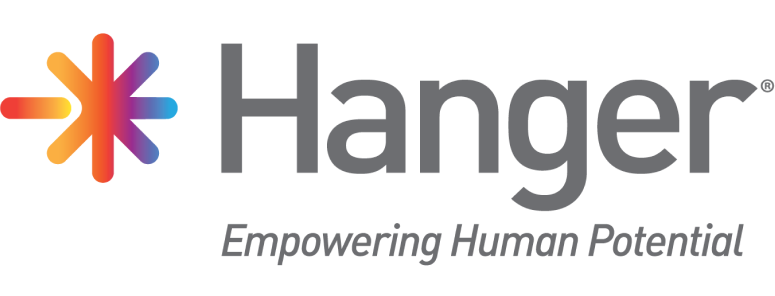
AUSTIN, Texas, Aug. 26, 2021 – Hanger, Inc. and Ottobock today announced they have joined resources to conduct a landmark five-year clinical study to collect data around what potential health benefits microprocessor-controlled knee (MPK) technologies provide people 65 and older. This endeavor would establish evidence that could expand and support new coverage policies, offering greater access to seniors with above-knee limb loss.
The Hanger Institute for Clinical Research and Education and Ottobock are partnering with Hanger Clinic prosthetists around the country to conduct this landmark prospective randomized trial. ASCENT K2 (ASsessing outComes with microprocEssor kNee uTilization in a K2 population) will measure the short and long-term effects of MPK use in K2-level community ambulators, meaning people who can navigate low-level environmental barriers like stairs and curbs. Specific data points measured will include health-related quality of life, participation in society and activities, fall rates, and participants’ fear of falling.
ASCENT K2 began enrolling test subjects and fit its first MPK recipient in July. By the end of March 2022, 100 Hanger Clinic patients will be enrolled in the study. Half the patients will be randomized into a group fit with an Ottobock MPK, an advanced prosthetic technology typically only covered for higher-level K3 or K4 ambulators. The other half will form a control group using mechanical, non-MPK knees, the current standard for K2 ambulators. Participants will be assessed periodically throughout their first 12 months in the study, with initial analyses published at the one-year mark, and then annually for five years.
“We are delighted to leverage our collaborative research capabilities and clinical expertise to gather much-needed data about the growing population of seniors with lower limb amputations,” stated Dr. James Campbell, Chief Clinical Officer of the Hanger Institute for Clinical Research and Education. “This important research is designed to help ensure people living with limb loss have coverage for medically necessary and clinically appropriate technology, which will, in turn, enable them to participate more fully in their communities and enjoy a higher quality of life.”
“Ottobock has been working on the generation of scientific evidence for the benefits of MPK in K2 patients for 15 years now with several clinical studies conducted at academic research centers with only limited access to this patient population. We are very pleased that our partnership with Hanger Clinic enables our two companies now to run the biggest interventional study yet in the real-life environment of prosthetic clinics that should eventually compel the healthcare payer community of the benefits that MPK deliver to limited community ambulators,” said Dr. Andreas Hahn, VP Clinical Research & Services, Otto Bock Healthcare Products GmbH, Vienna (Austria).
About Hanger, Inc. – Headquartered in Austin, Texas, Hanger, Inc. (NYSE: HNGR) provides comprehensive, outcomes-based orthotic and prosthetic (O&P) services through its Patient Care segment, with approximately 800 Hanger Clinic locations nationwide. Through its Products & Services segment, Hanger distributes branded and private label O&P devices, products and components, and provides rehabilitative solutions. Recognized by Forbes as one of America’s Best Employers for 2021, and rooted in 160 years of clinical excellence and innovation, Hanger is a purpose-driven company with a vision to lead the O&P markets by providing superior patient care, outcomes, services and value, aimed at empowering human potential. For more information on Hanger, visit news.hanger.com.
About Ottobock – Ottobock develops “wearable human bionics” – medical technology products for people with limited mobility in the fields of prosthetics, neuro-orthotics, human mobility (wheelchairs) and exoskeletons. The company, founded in 1919, also treats patients in its Patient Care division. Ottobock’s mission is to improve their quality of life and increase health economic benefits. With the Paexo exoskeletons, Ottobock has transferred its expertise in biomechanics to applications for industry as well since 2012. Subsidiaries in almost 60 countries offer “Made in Germany” quality worldwide and employ more than 8000 people. The international activities of the company are coordinated from the head office in Duderstadt (state of Lower Saxony). Ottobock has been supporting the Paralympic Games with its technical expertise since 1988.
Contact:
Annie Myers
External Relations Manager
(210) 440-7380 or [email protected]
